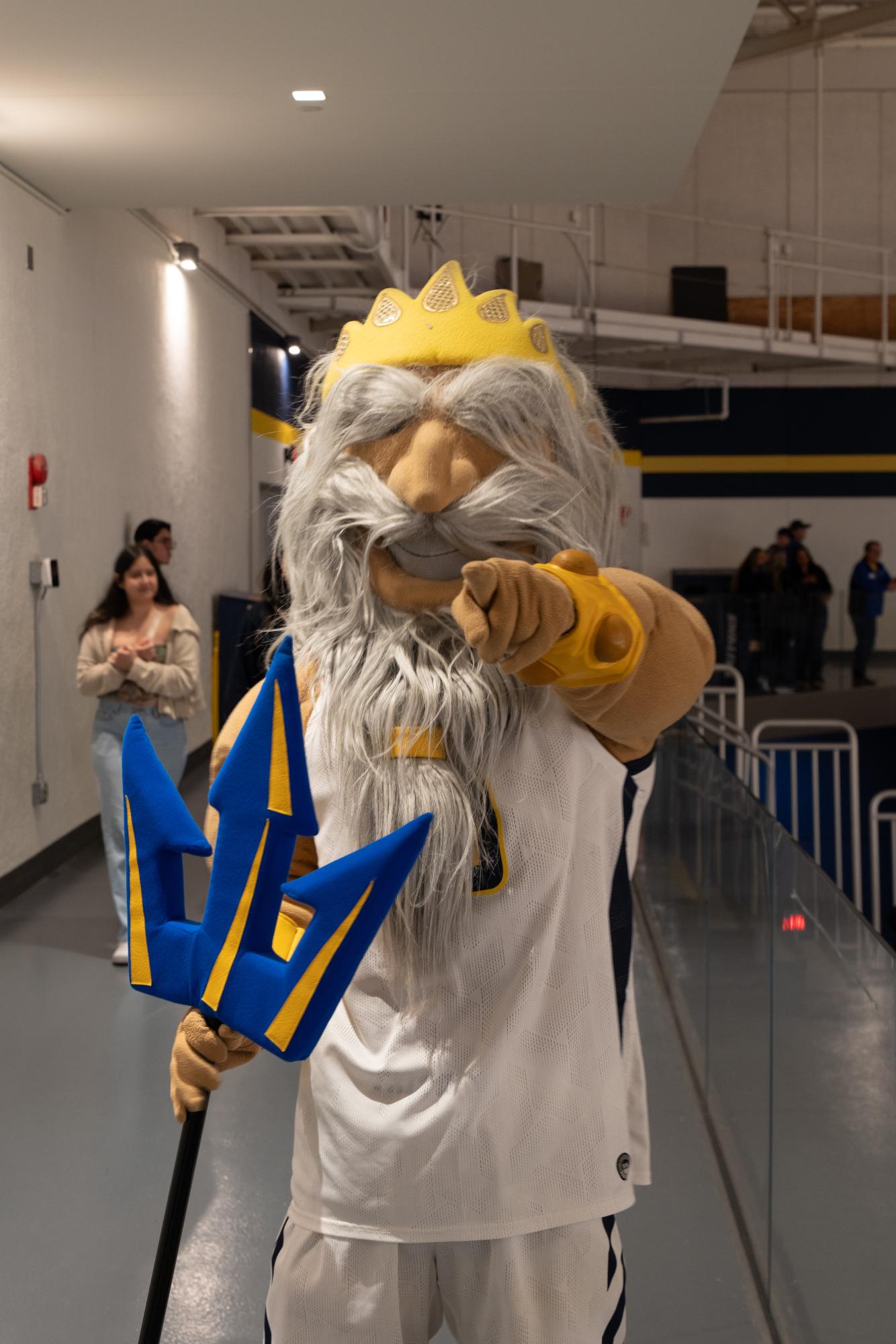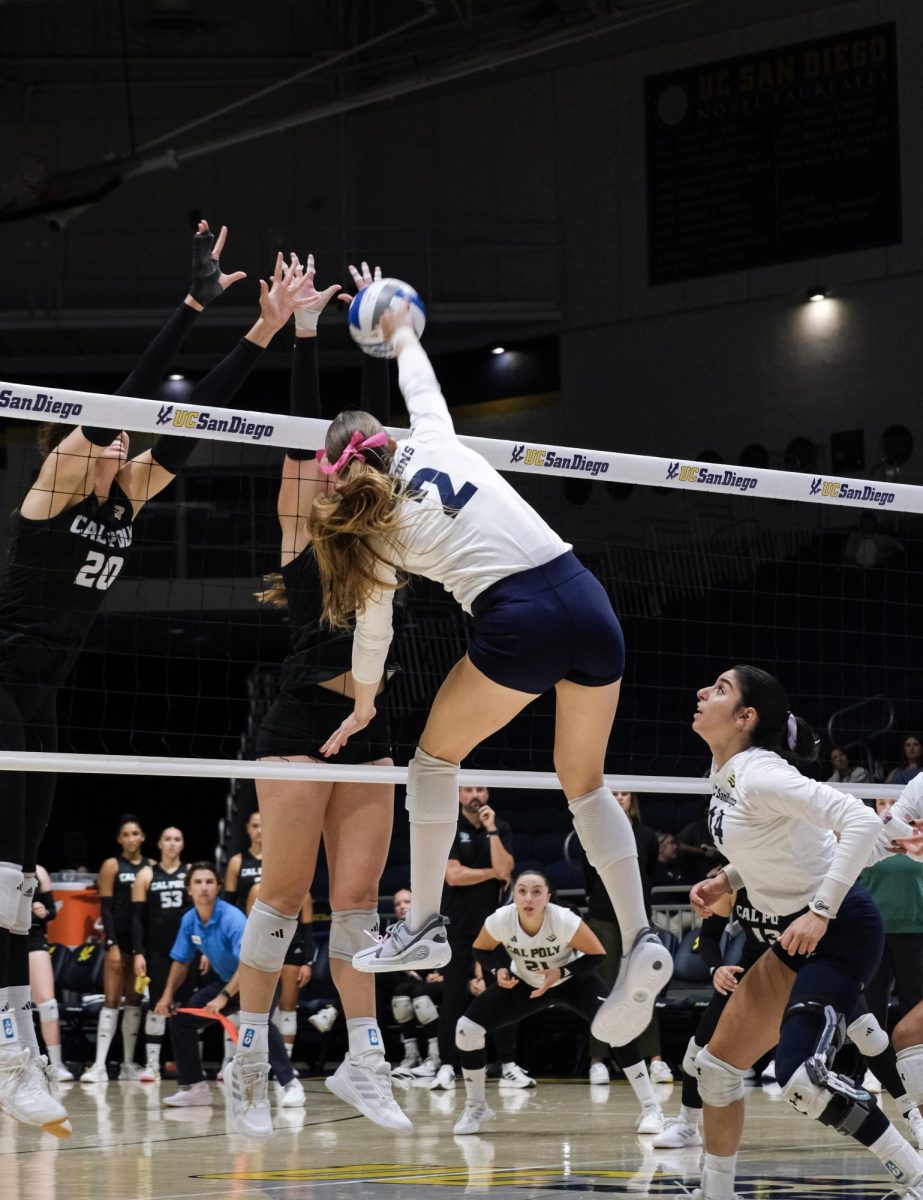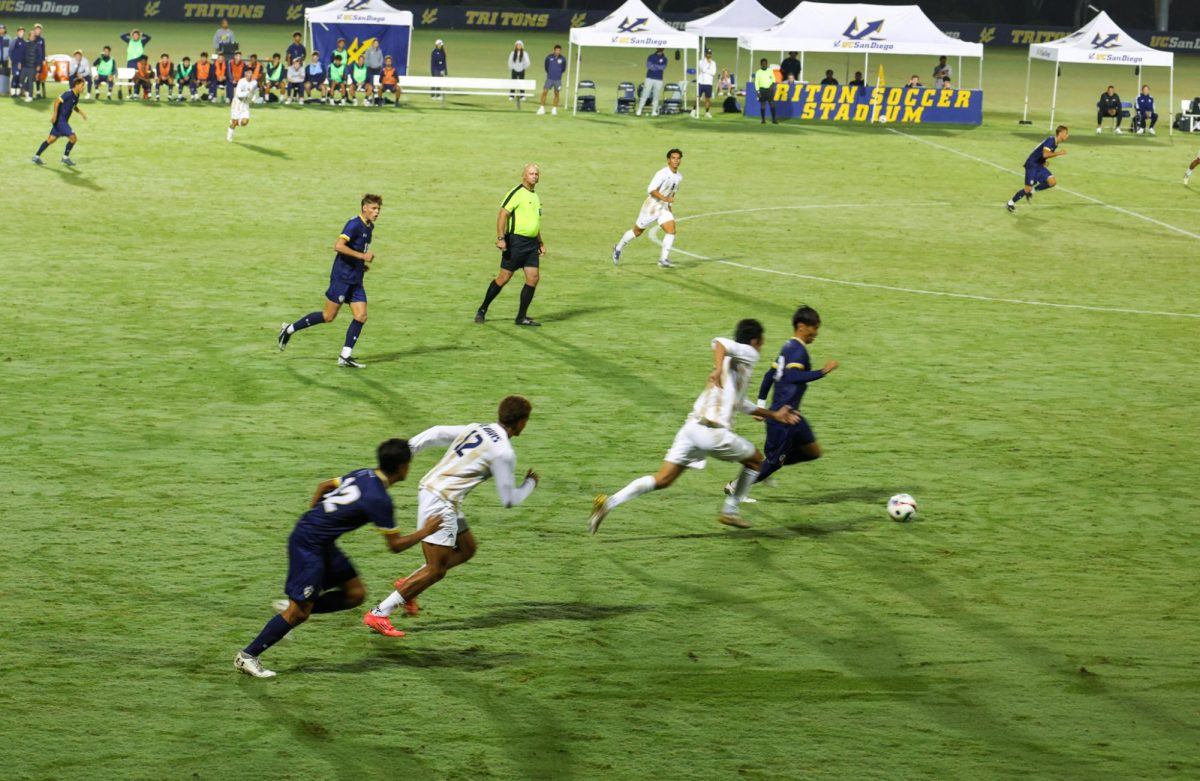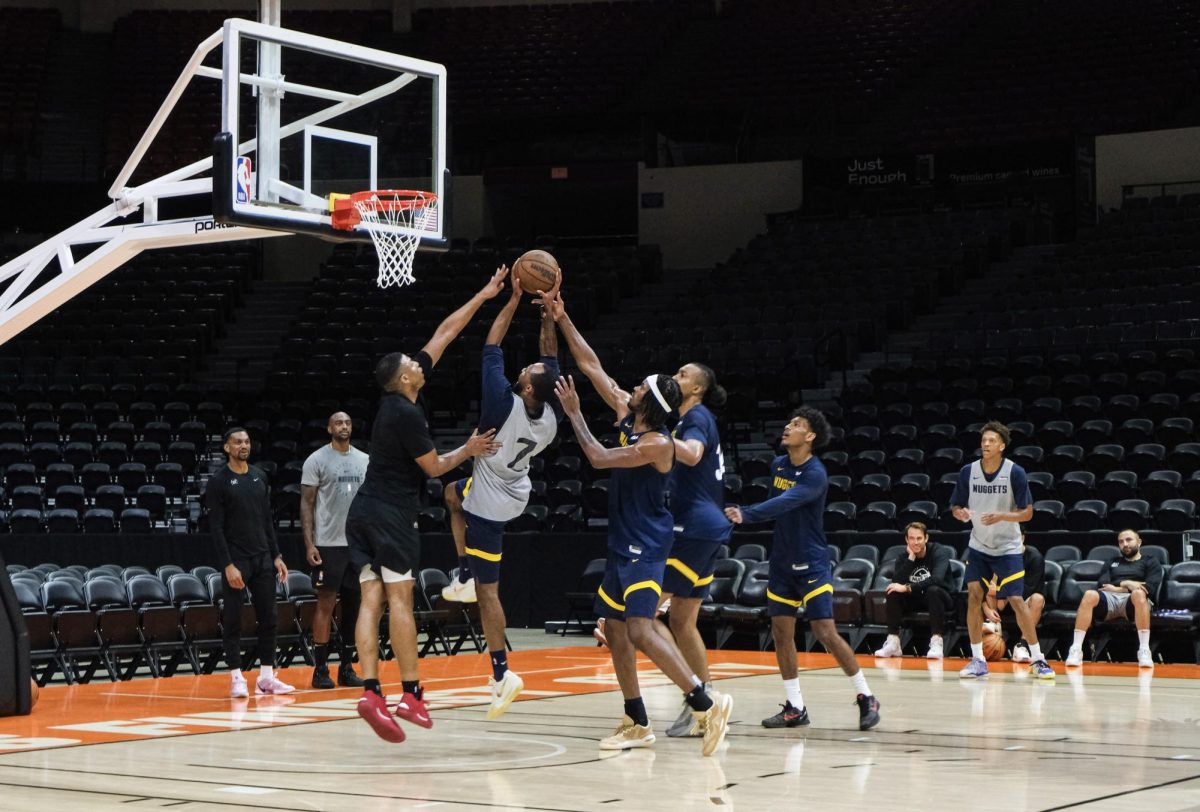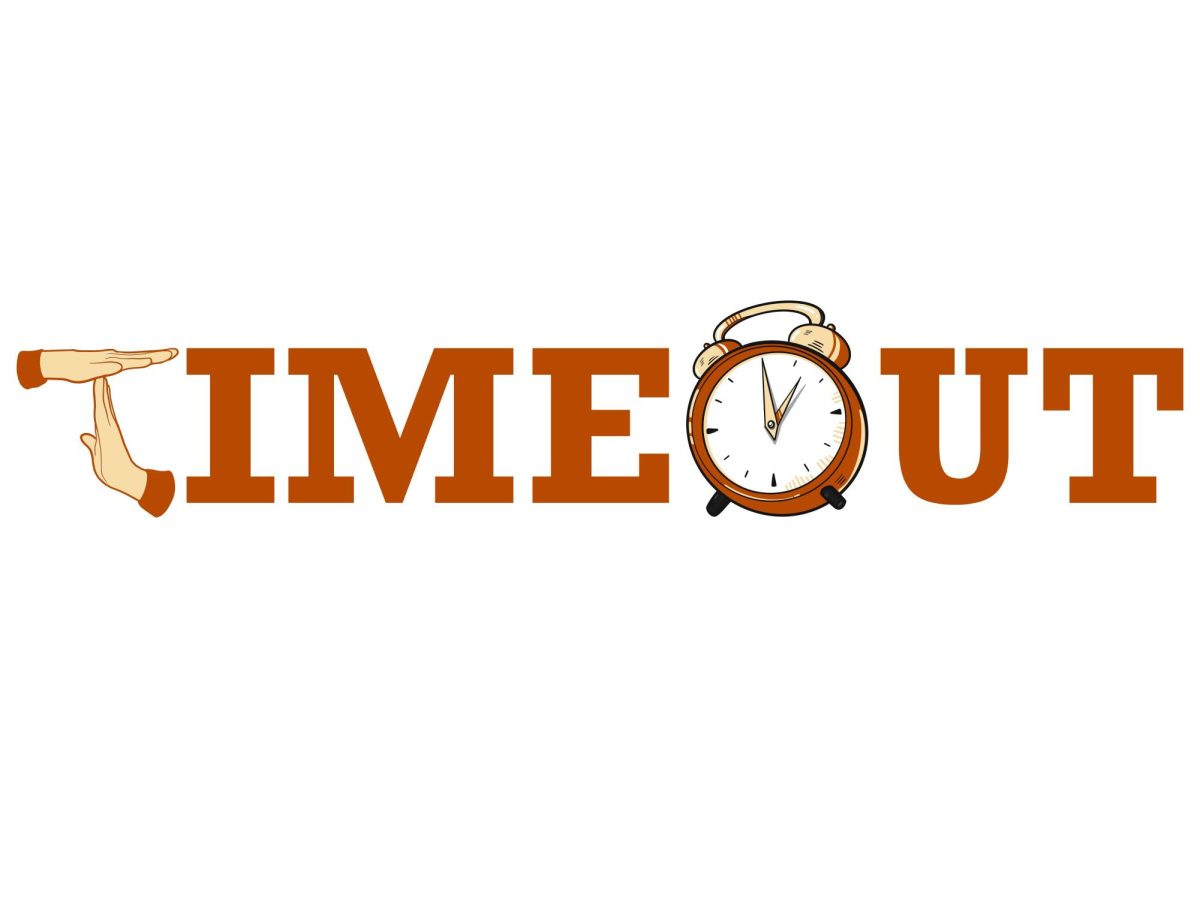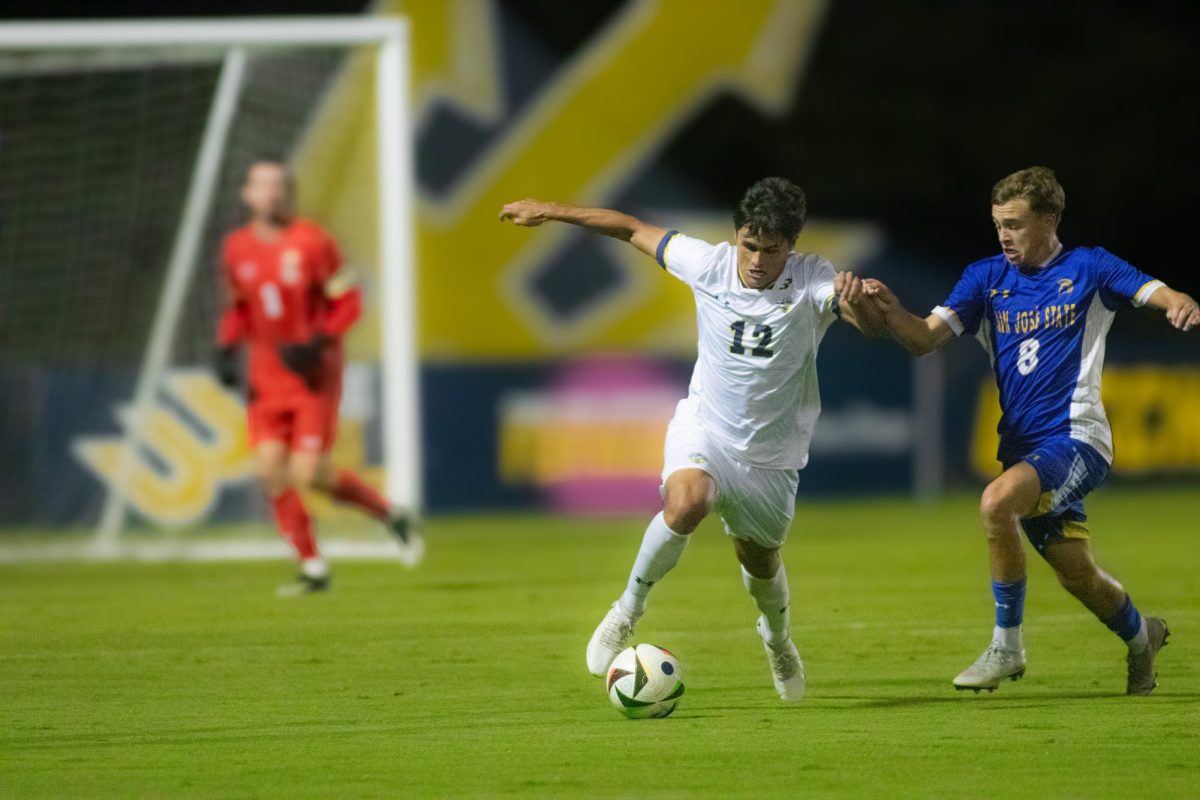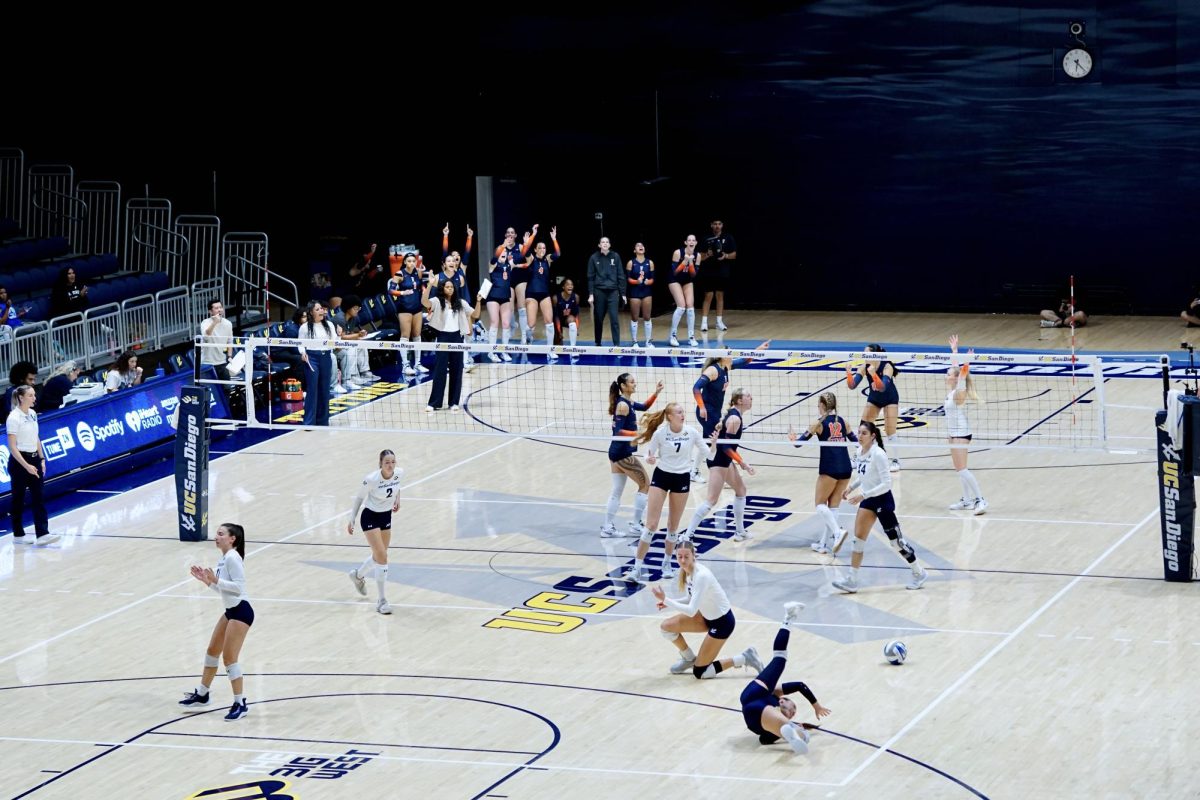Editor’s Note: The following is a satirical article for The DisreGuardian, a series of articles published annually for The Guardian’s April Fool’s issue. Sports will resume publishing normal content next week.
Even though the college basketball season is almost over, many students are still upset by the rules that have prohibited UC San Diego from competing in the Big West conference tournament and March Madness. As a fellow student-athlete at this school, I’m confused about why so many people are upset by this.
I mean, why should we get to compete with other schools at the Division I level? Being promoted from Division II to Division I has some obvious advantages. After all, we’ve only been a part of Division I athletics for the last four years and have already competed with other schools on the highest level. With the women’s swim team winning the Mountain Pacific Sports Federation title in 2022, and baseball winning Big West last year, we clearly have an added advantage that other schools don’t have. Why should our athletes, who have established the Tritons as a strong mid-major athletic program, be rewarded for all their hard work? Not getting to chase after titles on a national level has helped us athletes in more ways than one could imagine. It has built character.
Speaking of rewarding athletes for their hard work, what’s the deal with this whole name, image, and likeness thing? Up until a few years ago, student-athletes couldn’t get paid at all for their athletic success. Now, there’s a loophole for student-athletes to get paid for sponsorships and endorsements. This is still only a state-by-state guideline, and it hasn’t been adopted by the NCAA yet, which is good. It should be harder for student-athletes to receive compensation for their work. Think about it, all this does is get them ready for the workforce. After graduation, how many people are immediately met with a well-paying job that doesn’t require long work days? Exactly, almost nobody is this fortunate. Is it not better to get them used to this lifestyle now before they learn the hard way later?
Besides, college athletes only spend a few hours a day dedicated to their sport; it’s not that hard making sure it doesn’t get in the way of classes, homework, studying, sleep, having any semblance of social life, or anything else important to maintaining a healthy lifestyle. If an athlete ever gets sad or upset, they can just let out their frustrations by playing their sport. Other than Naomi Osaka, Simone Biles, Michael Phelps, Noah Lyles, Kevin Love, and perhaps a few others, there are basically no athletes that have actually had to publically deal with mental health issues. Even if they did, there’s nothing stopping them from being open about it and seeking the treatment they need.
Finally, with March Madness coming to a close, I just want to express my gratitude for the extensive media coverage granted to basketball and a handful of other sports. I really appreciate it being so easy to watch a game of college basketball between two teams I’ve never heard of before. I would never even think about watching the highest-level athletes in other sports compete in their respective national championships. I’m glad all we get to see from those sports are low-quality videos that are nearly impossible to find anywhere. The NCAA only makes a bit more than $1 billion a year, so they have to be very careful with how they use it. After all, if people could easily watch these other sports and start to enjoy them, then they might actually have to cover them more extensively, which would take away from my regular season Division III baseball games!
I’m sure the other athletes won’t mind remaining in the shadows for a little longer. They’ve dealt with it before.



